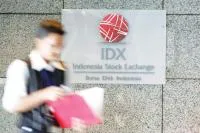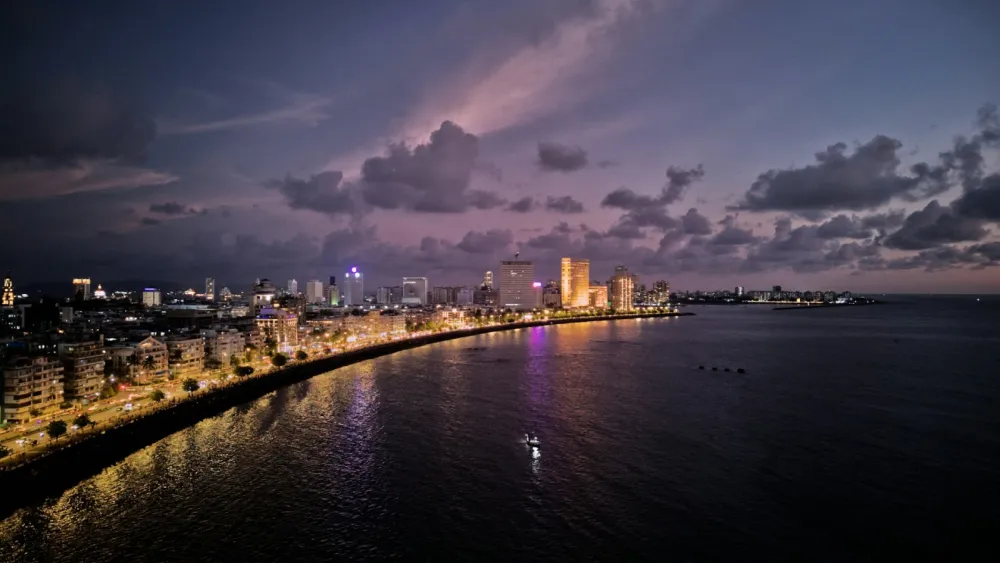Published:

Does Bank Century mark a return to ‘97 for Indonesia?
Market reaction to the first significant bank failure in South East Asia couldn’t have been more subdued if the entire proceedings had happened deep in darkest Myanmar. That Bank Century’s ignominious fall from grace occurred in the region’s biggest, and one of its most vigorous, democracies could herald an era of market apathy. Rather like disaster fatigue, where victims no longer respond to the horror around them, global financiers have been on the receiving end of so much bad news in the past eighteen months, it’s hardly surprising that the reports of Bank Century’s suspension from the Indonesia stock exchange was written off as largely irrelevant.
UBS analysts responded with comments that the bank’s suspension would cause ‘limited damage to the industry given Century’s small size’ and Reuters gave the news no more than a cursory paragraph. Why then the kerfuffle? Surely swift regulatory intervention is what is required when financial institutions look likely to go belly up, so we are told. Whatever Dick Fuld’s sins, no one could have believed that Lehman’s true value could have fallen so far that it warranted filing chapter 11 – and Lehmans serves as a warning of what can happen when panicked markets are left to act alone. A swift fix for Century, no media hyperbole and carry on smiling – good news all round. Perhaps. Before we go into the questions that Bank Century’s takeover raises, if you missed the ½ column inch devoted to Indonesia’s 13th largest bank, here’s a quick update. Bank Century was formed in 2004 from the merger of PT Bank CIC, PT Bank Pikko and PT Bank Danpac: one of the series of government instigated mergers following massive bank failures and loan defaults in the 1997 financial crisis. Last in trouble in 2007, when it was reported to have capital raising issues, it remained profitable in the first three quarters of 2008, albeit showing lower returns than prior year. On 13th November Bank Century failed to participate in regulatory daily clearing with the Bank of Indonesia. An administrative error, claimed management including co-founder Robert Tantular who, along with other bank executives, has since received a ban on leaving the country for six months. Bank of Indonesia wasn’t satisfied with the explanation and suspended Century’s shares. Subsequently it was determined that its capital adequacy ratio had fallen to 2.3 percent, below the minimum 8 percent required by the central bank. What follows then, remains unclear. According to certain reports, Century’s corporate secretary Deddy Triyana claimed the bank made the clearing settlement later on the same day it was due and a technical gliche had been to blame. Other reports state that the suspension was as a result of speculation over liquidity since Century had failed to meet an interbank obligation. Probably the most comprehensive explanation was that Century may have hit a funding crisis brought about by holdings of foreign debt securities. According to central bank officials, Century had failed to receive funds from around US$56 million worth of bonds maturing in late October and early November, causing its liquidity problems. Siti Fadjrijah, a deputy central bank governor, said, “The trouble at Bank Century was mostly related to its holdings of debt securities denominated in foreign currency.” Neither Fadjrijah nor her colleagues named the issuers of the debt, nor did they explain where the eventual funding was raised (if indeed it was) to meet the late obligation. In the end it didn’t matter. Century was forced to close negotiations with Sinar Mars (a local conglomerate that had been negotiating to take up to 70% of Century) and allow the Indonesian Deposit Insurance Agency to take control of the bank. Emergency funding was promised to, ‘gradually increase the capital adequacy ratio to at least 8 percent,’ said Firdaus Djaelani, chairman of the agency, after which he will, ‘look for new investors.’ In the meantime, Mr Tantular has been shoved aside to make way for Maryono of Bank Mandiri, Indonesia’s largest lender by assets, as interim president of Century. According to Mr Maryono, Bank Mandiri has no interest in buying shares in the ailing bank, waylaying any fears that this is the forced imposition of a favoured baron.If the facts (as far as can be ascertained) are correct, Indonesia’s regulators have intervened swiftly to prevent a possible deposit run on a small yet significant domestic bank. Mopping up widespread market panic would ultimately be far more costly-450 trillion rupiah were spent after the 1997 crisis. But what of the unanswered questions that have been so neatly swept aside in this Commando-style operation. Who are the issuers of the debt securities that caused Century to fail liquidity measures? What has happened to these securities now? And, more frighteningly, how widespread are such securities in the Indonesian banking sector? Mr Djaelani and Ms Fadjrijah might be patting themselves on the back for a rapid strike and mopping up exercise, but until the full facts emerge the fear of more danger lurking on Indonesia’s banking balance sheets remains a potent one.
UBS analysts responded with comments that the bank’s suspension would cause ‘limited damage to the industry given Century’s small size’ and Reuters gave the news no more than a cursory paragraph. Why then the kerfuffle? Surely swift regulatory intervention is what is required when financial institutions look likely to go belly up, so we are told. Whatever Dick Fuld’s sins, no one could have believed that Lehman’s true value could have fallen so far that it warranted filing chapter 11 – and Lehmans serves as a warning of what can happen when panicked markets are left to act alone. A swift fix for Century, no media hyperbole and carry on smiling – good news all round. Perhaps. Before we go into the questions that Bank Century’s takeover raises, if you missed the ½ column inch devoted to Indonesia’s 13th largest bank, here’s a quick update. Bank Century was formed in 2004 from the merger of PT Bank CIC, PT Bank Pikko and PT Bank Danpac: one of the series of government instigated mergers following massive bank failures and loan defaults in the 1997 financial crisis. Last in trouble in 2007, when it was reported to have capital raising issues, it remained profitable in the first three quarters of 2008, albeit showing lower returns than prior year. On 13th November Bank Century failed to participate in regulatory daily clearing with the Bank of Indonesia. An administrative error, claimed management including co-founder Robert Tantular who, along with other bank executives, has since received a ban on leaving the country for six months. Bank of Indonesia wasn’t satisfied with the explanation and suspended Century’s shares. Subsequently it was determined that its capital adequacy ratio had fallen to 2.3 percent, below the minimum 8 percent required by the central bank. What follows then, remains unclear. According to certain reports, Century’s corporate secretary Deddy Triyana claimed the bank made the clearing settlement later on the same day it was due and a technical gliche had been to blame. Other reports state that the suspension was as a result of speculation over liquidity since Century had failed to meet an interbank obligation. Probably the most comprehensive explanation was that Century may have hit a funding crisis brought about by holdings of foreign debt securities. According to central bank officials, Century had failed to receive funds from around US$56 million worth of bonds maturing in late October and early November, causing its liquidity problems. Siti Fadjrijah, a deputy central bank governor, said, “The trouble at Bank Century was mostly related to its holdings of debt securities denominated in foreign currency.” Neither Fadjrijah nor her colleagues named the issuers of the debt, nor did they explain where the eventual funding was raised (if indeed it was) to meet the late obligation. In the end it didn’t matter. Century was forced to close negotiations with Sinar Mars (a local conglomerate that had been negotiating to take up to 70% of Century) and allow the Indonesian Deposit Insurance Agency to take control of the bank. Emergency funding was promised to, ‘gradually increase the capital adequacy ratio to at least 8 percent,’ said Firdaus Djaelani, chairman of the agency, after which he will, ‘look for new investors.’ In the meantime, Mr Tantular has been shoved aside to make way for Maryono of Bank Mandiri, Indonesia’s largest lender by assets, as interim president of Century. According to Mr Maryono, Bank Mandiri has no interest in buying shares in the ailing bank, waylaying any fears that this is the forced imposition of a favoured baron.If the facts (as far as can be ascertained) are correct, Indonesia’s regulators have intervened swiftly to prevent a possible deposit run on a small yet significant domestic bank. Mopping up widespread market panic would ultimately be far more costly-450 trillion rupiah were spent after the 1997 crisis. But what of the unanswered questions that have been so neatly swept aside in this Commando-style operation. Who are the issuers of the debt securities that caused Century to fail liquidity measures? What has happened to these securities now? And, more frighteningly, how widespread are such securities in the Indonesian banking sector? Mr Djaelani and Ms Fadjrijah might be patting themselves on the back for a rapid strike and mopping up exercise, but until the full facts emerge the fear of more danger lurking on Indonesia’s banking balance sheets remains a potent one.



















 Advertise
Advertise














